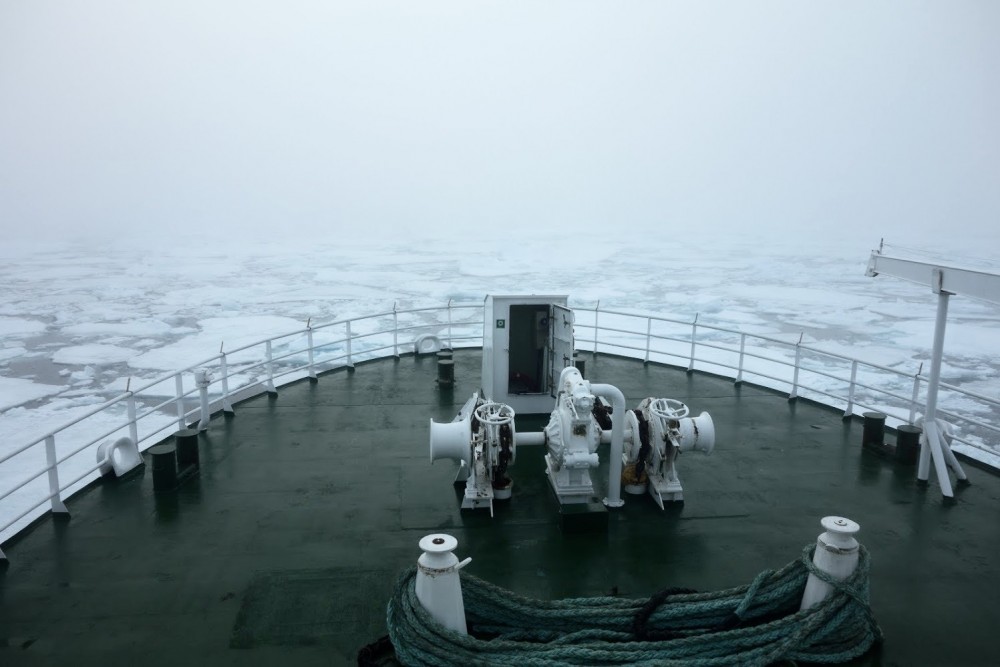Russia considering withdrawal from UN Convention on the Law of the Sea in the Arctic

“The issue of the possible denunciation of the UN Convention on the Law of the Sea in the Arctic is under study, said the Chairman of the Russian Parliament Committee for the Development of the Far East and Arctic Nikolai Kharitonov to the Russian news website Izvestia on Monday.
“We will not continue to be part of it to our detriment”, Mr. Kharitonov continues. “As Vladimir Putin says, we are no longer going to believe in their words. If you look at the Arctic from above, 64% of it, based on the circumference, belongs to Russia. We secured it all and we are obliged to protect everything that our ancestors handed to us.”
The Sea Law Treaty is the most important document that regulates different countries’ rights and behavior in the sea and shelve. It is known to be considered a “Constitution” for the oceans that cover around 70% of the Earth’s surface. Any issues concerning the extraction of natural resources, fishing, national borders, navigation – all are regulated by this Treaty.
Russia has a very large maritime area of the Arctic Ocean under its jurisdiction. I would question the value of Russia’s withdrawal from the UN Convention on the Law of the Sea. I’m not sure what they would gain from it.
– Tore Henriksen, professor at the Faculty of Law, UiT The Arctic University of Norway
“Of course, Russia has a right to withdraw from the Convention. But Russia would still be bound by most of its provisions as they also reflect Customary International Law. My understanding is that Russia so far has played by the book in the Arctic. It has complied with the UN Convention on the Law of the Sea. Still, a decision to withdraw would seem to be quite a dramatic shift”, added Mr. Henriksen.
Recently Russia has been active in determining the outer limits of its continental shelf in the Arctic.
The Kremlin-controlled Izvestia news website article also clarifies that the statements about the withdrawal are connected to Russia’s concern about NATO ships and aviation “conducting intelligence” in, what the Izvestia calls, the “Russian sector of the Arctic, but formally they do not cross the 12-mile zone”.
Related stories from around the North:
Canada: U.S. report claims Trudeau told NATO Canada will never meet military spending target, CBC News
Denmark: Danish policy prioritizes low-conflict Arctic amidst Russian tensions, Eye on the Arctic
Finland: NATO membership strengthens Arctic Security, deepens Canada ties: Finnish Ambassador, Eye on the Arctic
Iceland: Iceland authorizes U.S. submarine service visits, Eye on the Arct
Norway: Russian jamming disrupting GPS signals for Norwegian aviation almost daily, The Independent Barents Observer
Russia: As NATO forces move north for exercise, Northern Fleet sails out frigates, The Independent Barents Observer
Sweden: Swedish forces exercise in northern Norway as country officially joins NATO, Reuters
United States: U.S. nominates Alaskan as first Arctic ambassador, Eye on the Arctic



